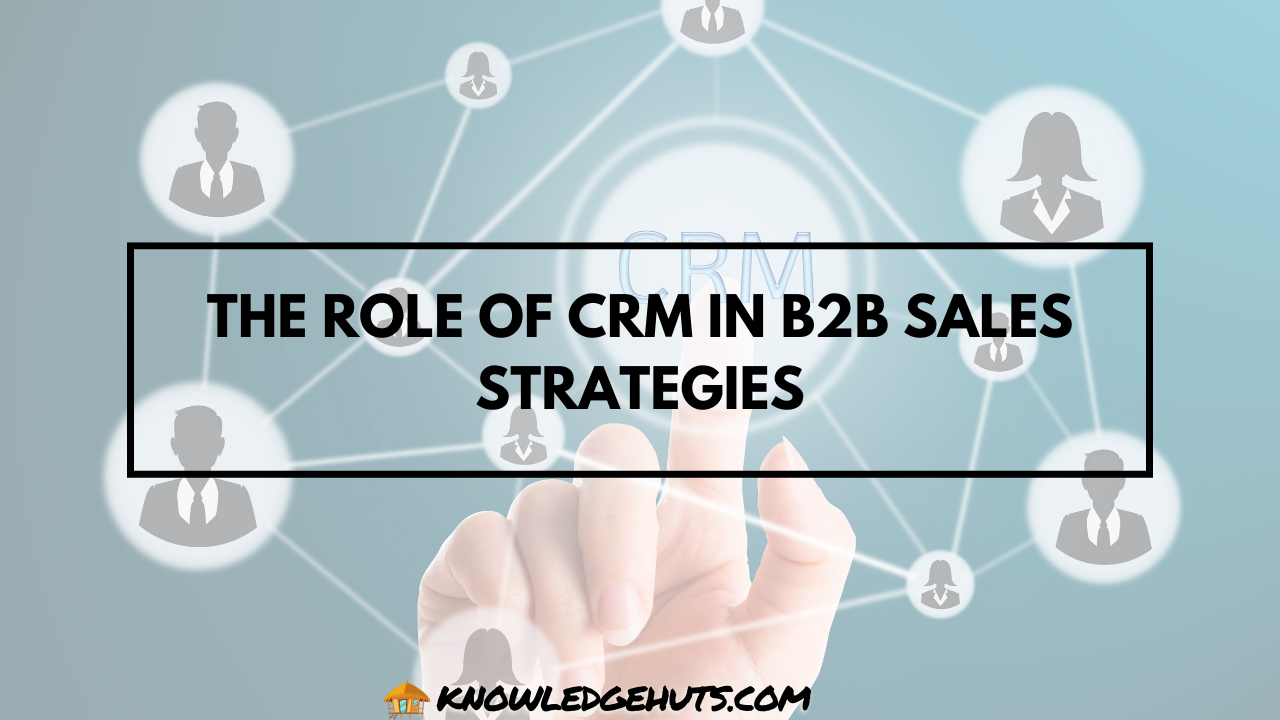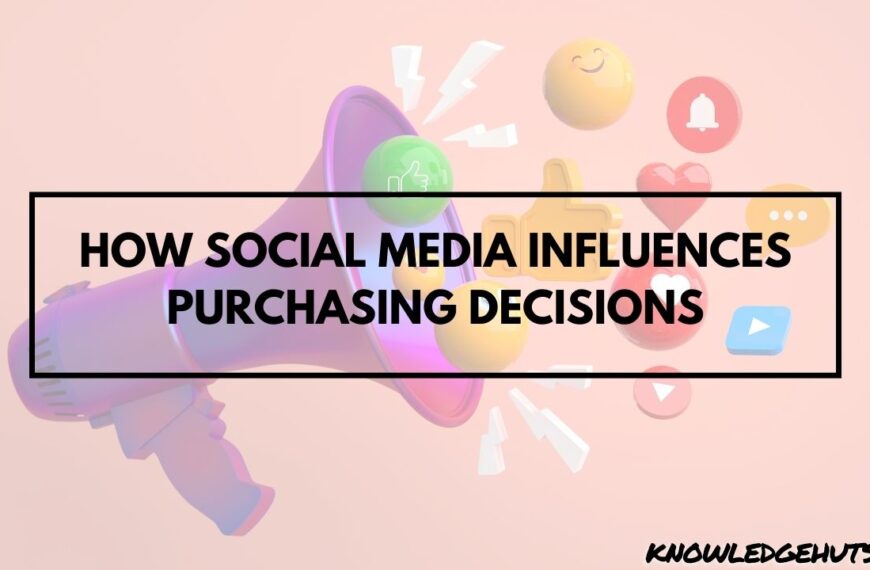In today’s highly competitive business landscape, effective sales strategies are crucial for the success of any B2B (business-to-business) organization. With increasing customer expectations and the need for personalized interactions, companies are turning to Customer Relationship Management (CRM) systems to streamline their sales processes, manage customer relationships, and drive revenue growth.
This blog post explores the role of CRM in B2B sales strategies, highlighting its benefits, features, and impact on sales performance. Through facts, figures, and case studies, we will demonstrate how CRM systems are transforming B2B sales and why they are essential for businesses looking to stay ahead of the curve.
Understanding CRM and Its Importance in B2B Sales
A Customer Relationship Management (CRM) system is a technology platform that helps businesses manage their interactions with current and potential customers. It centralizes customer data, automates tasks, and provides valuable insights into customer behavior and sales performance.
In the B2B context, where sales cycles are typically longer and involve multiple stakeholders, CRM systems play a critical role in managing complex relationships and ensuring that sales teams can operate efficiently.
According to a report by Grand View Research, the global CRM market size was valued at $58.82 billion in 2021 and is expected to grow at a compound annual growth rate (CAGR) of 13.3% from 2022 to 2030. This growth is driven by the increasing demand for customer-centric solutions that improve sales productivity and enhance customer engagement.
Table 1: Global CRM Market Growth (2021-2030)
| Year | Market Size (Billion USD) | CAGR (%) |
|---|---|---|
| 2021 | 58.82 | 13.3 |
| 2025 | 94.2 | 13.3 |
| 2030 | 168.2 | 13.3 |
Key Benefits of CRM in B2B Sales Strategies
Implementing a CRM system in a B2B sales strategy offers numerous benefits that can significantly impact the overall performance of the sales team and the organization. Below are some of the key benefits:
- Enhanced Customer Insights:
- CRM systems provide a 360-degree view of customers by consolidating data from various sources, including emails, phone calls, social media interactions, and purchase history. This comprehensive view enables sales teams to better understand customer needs, preferences, and pain points, allowing them to tailor their sales approach accordingly.
- According to Salesforce, 79% of business buyers expect sales reps to act as trusted advisors, understanding their needs and providing personalized solutions. CRM systems make this level of personalization possible by equipping sales teams with the insights they need to build stronger relationships with their clients.
- Improved Sales Efficiency:
- CRM systems automate routine tasks such as data entry, follow-up reminders, and reporting, allowing sales teams to focus on high-value activities like prospecting and closing deals. Automation reduces the administrative burden on sales reps, leading to higher productivity and shorter sales cycles.
- A study by Nucleus Research found that companies using CRM systems see an average return on investment (ROI) of $8.71 for every dollar spent. This ROI is largely driven by the efficiency gains and increased sales effectiveness that CRM systems provide.
- Better Lead Management:
- Effective lead management is critical for B2B sales success. CRM systems and software to manage contacts help sales teams capture, track,, and prioritize leads based on factors such as lead score, engagement level, and purchase intent. This ensures that sales reps focus their efforts on the most promising opportunities, leading to higher conversion rates.
- According to InsideSales, companies that use CRM systems can see up to a 300% improvement in lead conversion rates. By providing a structured approach to lead management, CRM systems help sales teams nurture leads more effectively and close deals faster. When combined with targeted strategies like sales cold calling services, businesses can further amplify their outreach efforts and enhance overall sales performance.
- Enhanced Collaboration and Communication:
- B2B sales often involve multiple stakeholders, both within the sales team and on the client side. CRM systems facilitate collaboration by providing a centralized platform where team members can share information, track progress, and coordinate their efforts. This ensures that everyone is on the same page and working towards the same goals.
- For example, a study by Aberdeen Group found that organizations with a collaborative sales culture achieve 21% higher profitability than those without. CRM systems enable this collaboration by breaking down silos and promoting transparent communication among team members.
Table 2: Key Benefits of CRM in B2B Sales
| Benefit | Impact on Sales Performance | Supporting Data/Statistics |
|---|---|---|
| Enhanced Customer Insights | Personalized interactions, stronger relationships | 79% of business buyers expect personalized solutions (Salesforce) |
| Improved Sales Efficiency | Higher productivity, shorter sales cycles | $8.71 ROI for every $1 spent on CRM (Nucleus Research) |
| Better Lead Management | Higher conversion rates, more effective lead nurturing | 300% improvement in lead conversion rates (InsideSales) |
| Enhanced Collaboration | Improved communication, better teamwork | 21% higher profitability with collaborative sales culture (Aberdeen Group) |
CRM Features that Drive B2B Sales Success
To fully understand the role of CRM in B2B sales strategies, it’s essential to explore the key features that make CRM systems so effective. These features are designed to address the unique challenges of B2B sales, such as long sales cycles, complex decision-making processes, and the need for personalized engagement.
- Sales Pipeline Management:
- A CRM system’s sales pipeline management feature provides a visual representation of the sales process, from lead generation to deal closure. Sales reps can track the progress of each deal, identify bottlenecks, and prioritize their efforts based on the stage of the pipeline. This feature helps sales teams maintain a steady flow of opportunities and ensures that no deals fall through the cracks.
- Research by Harvard Business Review found that companies with a formalized sales process achieve 18% higher revenue growth than those without. CRM systems facilitate this by providing a structured approach to pipeline management.
- Customer Segmentation:
- CRM systems allow sales teams to segment customers based on criteria such as industry, company size, geographic location, and buying behavior. This segmentation enables sales reps to tailor their messaging and offers to the specific needs of each customer segment, increasing the likelihood of successful outcomes.
- According to McKinsey, companies that excel at customer segmentation can achieve a 10% higher sales growth rate than their peers. CRM systems make it easy to implement and refine segmentation strategies, helping businesses target the right customers with the right messages.
- Sales Forecasting:
- Accurate sales forecasting is essential for making informed business decisions and allocating resources effectively. CRM systems use historical data and current pipeline information to generate sales forecasts, allowing sales leaders to predict future revenue and identify potential risks.
- A study by Gartner found that companies with effective sales forecasting practices achieve 10% higher sales quota attainment than those with less accurate forecasts. By providing data-driven insights, CRM systems help sales teams set realistic goals and track their progress toward achieving them.
- Integration with Marketing Automation:
- B2B sales strategies often involve close collaboration between sales and marketing teams. CRM systems that integrate with marketing automation platforms enable seamless alignment between these functions. For example, sales reps can access data on how prospects have interacted with marketing campaigns, allowing them to tailor their outreach accordingly.
- Research by Forrester shows that companies with aligned sales and marketing teams achieve 32% higher revenue growth. CRM systems play a key role in fostering this alignment by providing a unified view of customer interactions across both functions.
- Reporting and Analytics:
- CRM systems provide powerful reporting and analytics tools that allow sales leaders to monitor performance, identify trends, and make data-driven decisions. Customizable dashboards and reports provide real-time insights into key metrics such as win rates, average deal size, and sales cycle length.
- According to Salesforce, 66% of sales leaders say their CRM system is critical for managing their business, primarily due to its reporting and analytics capabilities. By leveraging these tools, sales teams can continuously refine their strategies and drive better results.
Table 3: CRM Features that Drive B2B Sales Success
| Feature | Description | Impact on Sales Performance |
|---|---|---|
| Sales Pipeline Management | Visualizes sales process, tracks progress, prioritizes efforts | 18% higher revenue growth with formalized sales process (HBR) |
| Customer Segmentation | Segments customers for personalized engagement | 10% higher sales growth with effective segmentation (McKinsey) |
| Sales Forecasting | Predicts future revenue, identifies risks | 10% higher sales quota attainment with accurate forecasting (Gartner) |
| Integration with Marketing Automation | Aligns sales and marketing efforts | 32% higher revenue growth with aligned teams (Forrester) |
| Reporting and Analytics | Provides real-time insights, tracks key metrics | 66% of sales leaders rely on CRM for business management (Salesforce) |
Case Studies: CRM in Action for B2B Sales Strategies
To illustrate the transformative impact of CRM on B2B sales strategies, let’s examine a few case studies from organizations that have successfully implemented CRM systems to achieve their sales goals.
- IBM:
- IBM, a global leader in technology and consulting services, implemented Salesforce CRM to improve its B2B sales processes. By centralizing customer data and automating key sales activities, IBM was able to increase sales productivity and drive more effective customer engagement. The CRM system also provided valuable insights into customer behavior, enabling IBM to tailor its offerings and build stronger relationships with its clients.
- As a result of its CRM implementation, IBM reported a 20% increase in sales productivity and a 15% improvement in customer satisfaction. The ability to access real-time data and analytics allowed IBM’s sales teams to make more informed decisions, ultimately leading to better sales outcomes and stronger client relationships.
- Siemens:
- Siemens, a global industrial manufacturing company, faced challenges in managing its complex B2B sales processes across multiple regions and product lines. The company implemented Microsoft Dynamics 365 CRM to streamline its sales operations and improve collaboration between its sales and marketing teams. The CRM system allowed Siemens to centralize customer data, automate lead management, and provide a unified view of the sales pipeline. To enhance the implementation and ensure optimal performance, Siemens leveraged Microsoft consulting services, gaining expert support for tailoring the solution to its specific needs.
- The implementation of the CRM system led to a 25% reduction in sales cycle time and a 30% increase in lead conversion rates. Siemens also saw improved alignment between its sales and marketing teams, resulting in more effective cross-functional collaboration and better overall sales performance.
- HubSpot:
- HubSpot, a leading provider of inbound marketing and sales software, implemented its own CRM system to support its rapidly growing B2B sales organization. The CRM system enabled HubSpot to manage customer interactions more effectively, track sales activities, and automate follow-up tasks. By providing a complete view of each customer’s journey, the CRM system helped HubSpot’s sales teams deliver personalized experiences that resonated with prospects and clients.
- As a result of using its own CRM system, HubSpot achieved a 40% increase in sales efficiency and a 50% improvement in deal closing rates. The ability to track and analyze customer interactions across multiple touchpoints enabled HubSpot to optimize its sales strategies and build stronger relationships with its customers.
Table 4: Case Studies of CRM Impact on B2B Sales Strategies
| Company | CRM Platform | Key Benefits Realized | Outcome |
|---|---|---|---|
| IBM | Salesforce | Increased sales productivity, better customer insights | 20% increase in productivity, 15% improvement in customer satisfaction |
| Siemens | Microsoft Dynamics 365 | Centralized data, automated lead management, improved collaboration | 25% reduction in sales cycle time, 30% increase in lead conversion rates |
| HubSpot | HubSpot CRM | Improved sales efficiency, personalized customer experiences | 40% increase in sales efficiency, 50% improvement in deal closing rates |
Overcoming Challenges in CRM Implementation for B2B Sales
While CRM systems offer significant benefits, their implementation can also present challenges. Understanding these challenges and how to address them is critical for ensuring a successful CRM deployment and maximizing its impact on B2B sales strategies.
- Data Integration and Quality:
- One of the most common challenges in CRM implementation is integrating data from various sources and ensuring data quality. Incomplete or inaccurate data can undermine the effectiveness of the CRM system, leading to poor decision-making and missed opportunities.
- To overcome this challenge, businesses should establish clear data governance policies and invest in data cleansing tools that ensure the accuracy and consistency of data across the organization. Additionally, integrating the CRM system with other enterprise systems, such as ERP or marketing automation platforms, can help create a unified view of customer data.
- User Adoption:
- A CRM system is only as effective as its users. If sales teams do not fully adopt the CRM system, its potential benefits will not be realized. Common barriers to user adoption include resistance to change, lack of training, and perceived complexity of the system.
- To drive user adoption, businesses should involve sales teams in the CRM selection and implementation process, ensuring that the system meets their needs and is easy to use. Providing comprehensive training, ongoing support, and clear communication about the benefits of the CRM system can also help encourage adoption.
- Customization and Scalability:
- While CRM systems offer a wide range of features, they may require customization through Custom CRM development to align with the specific needs of a B2B sales organization. However, excessive customization can lead to increased complexity, higher costs, and difficulties in scaling the system as the business grows.
- To address this challenge, businesses should focus on implementing a CRM system that offers flexibility and scalability out of the box. When customization is necessary, it should be done strategically, with a clear understanding of how it will impact the system’s long-term scalability and maintainability.
- Measuring ROI:
- Measuring the return on investment (ROI) of a CRM system can be challenging, especially in complex B2B environments with long sales cycles and multiple touchpoints. Without clear metrics and benchmarks, it can be difficult to assess the effectiveness of the CRM system and justify the investment.
- To measure ROI effectively, businesses should define specific, measurable objectives for the CRM system, such as increased sales productivity, improved lead conversion rates, or higher customer satisfaction. Regularly tracking these metrics and comparing them against pre-implementation benchmarks can provide valuable insights into the system’s impact on sales performance.
Table 5: Challenges in CRM Implementation and Solutions
| Challenge | Description | Solution |
|---|---|---|
| Data Integration and Quality | Ensuring accurate, consistent data from various sources | Establish data governance, invest in data cleansing tools, integrate with other systems |
| User Adoption | Resistance to change, lack of training, perceived complexity | Involve sales teams in selection, provide training, communicate benefits clearly |
| Customization and Scalability | Balancing customization needs with long-term scalability | Focus on flexibility, prioritize strategic customization |
| Measuring ROI | Difficulty in assessing the impact of CRM on sales performance | Define clear objectives, track metrics, compare against benchmarks |
The Future of CRM in B2B Sales Strategies
As technology continues to evolve, the role of CRM systems in B2B sales strategies is expected to become even more critical. Emerging trends and innovations will shape the future of CRM, driving greater efficiency, personalization, and strategic alignment.
- Artificial Intelligence (AI) and Machine Learning:
- AI and machine learning are poised to revolutionize CRM systems by providing predictive analytics, automating routine tasks, and enabling more personalized customer interactions. For example, AI-powered CRM tools can analyze customer data to predict buying behavior, recommend the best actions for sales reps, and identify opportunities for upselling or cross-selling.
- According to a study by Salesforce, 76% of business leaders believe that AI will significantly impact their industry within the next five years. As AI becomes more integrated into CRM systems, B2B sales teams will be able to work more efficiently and deliver more tailored experiences to their customers.
- Integration with the Internet of Things (IoT):
- The Internet of Things (IoT) is expanding the range of data available to CRM systems. By connecting devices and sensors, IoT can provide real-time insights into customer behavior, usage patterns, and product performance. This data can be used to enhance customer profiles, optimize sales strategies, and deliver proactive customer support.
- For example, a B2B company selling industrial equipment could use IoT data to monitor how customers are using their products and offer maintenance services or upgrades at the optimal time. Integrating IoT with CRM systems will enable businesses to create more connected and responsive customer experiences.
- Enhanced Mobile CRM Capabilities:
- As sales teams become more mobile, the demand for robust mobile CRM solutions is increasing. Future CRM systems will offer enhanced mobile capabilities, allowing sales reps to access customer data, update records, and manage tasks from anywhere. This mobility will empower sales teams to be more responsive and productive, even when working remotely.
- A report by Forrester predicts that 75% of B2B sales organizations will deploy mobile CRM solutions by 2025. The ability to access CRM tools on the go will be essential for maintaining agility in a fast-paced sales environment.
- Greater Focus on Customer Experience (CX):
- Customer experience is becoming a key differentiator in B2B sales, and CRM systems are evolving to support this shift. Future CRM platforms will prioritize CX by integrating customer feedback, tracking customer journeys, and providing insights into customer sentiment. By focusing on CX, B2B sales teams can build stronger, more loyal customer relationships.
- According to Gartner, 81% of companies expect to compete primarily on the basis of customer experience by 2023. CRM systems that prioritize CX will be essential for businesses looking to differentiate themselves in the market.
Table 6: Emerging Trends in CRM for B2B Sales Strategies
| Trend | Description | Potential Impact |
|---|---|---|
| AI and Machine Learning | Predictive analytics, task automation, personalized interactions | More efficient sales processes, tailored customer experiences |
| IoT Integration | Real-time insights from connected devices | Enhanced customer profiles, optimized sales strategies |
| Enhanced Mobile Capabilities | Access to CRM tools on the go, increased productivity | Greater agility, improved responsiveness |
| Focus on Customer Experience | Integration of CX insights, tracking customer journeys | Stronger customer relationships, market differentiation |
Conclusion
The role of CRM systems in B2B sales strategies cannot be overstated. By providing a centralized platform for managing customer relationships, streamlining sales processes, and gaining actionable insights, CRM systems empower businesses to achieve their sales goals and drive sustainable growth.
As the business landscape continues to evolve, CRM systems will play an increasingly important role in helping B2B organizations adapt to new challenges, leverage emerging technologies, and deliver exceptional customer experiences.
Whether it’s improving sales efficiency, enhancing collaboration, or driving better customer insights, the benefits of CRM in B2B sales strategies are clear. By investing in the right CRM system and following best practices for implementation, businesses can unlock the full potential of their sales teams and build lasting, profitable relationships with their customers.








